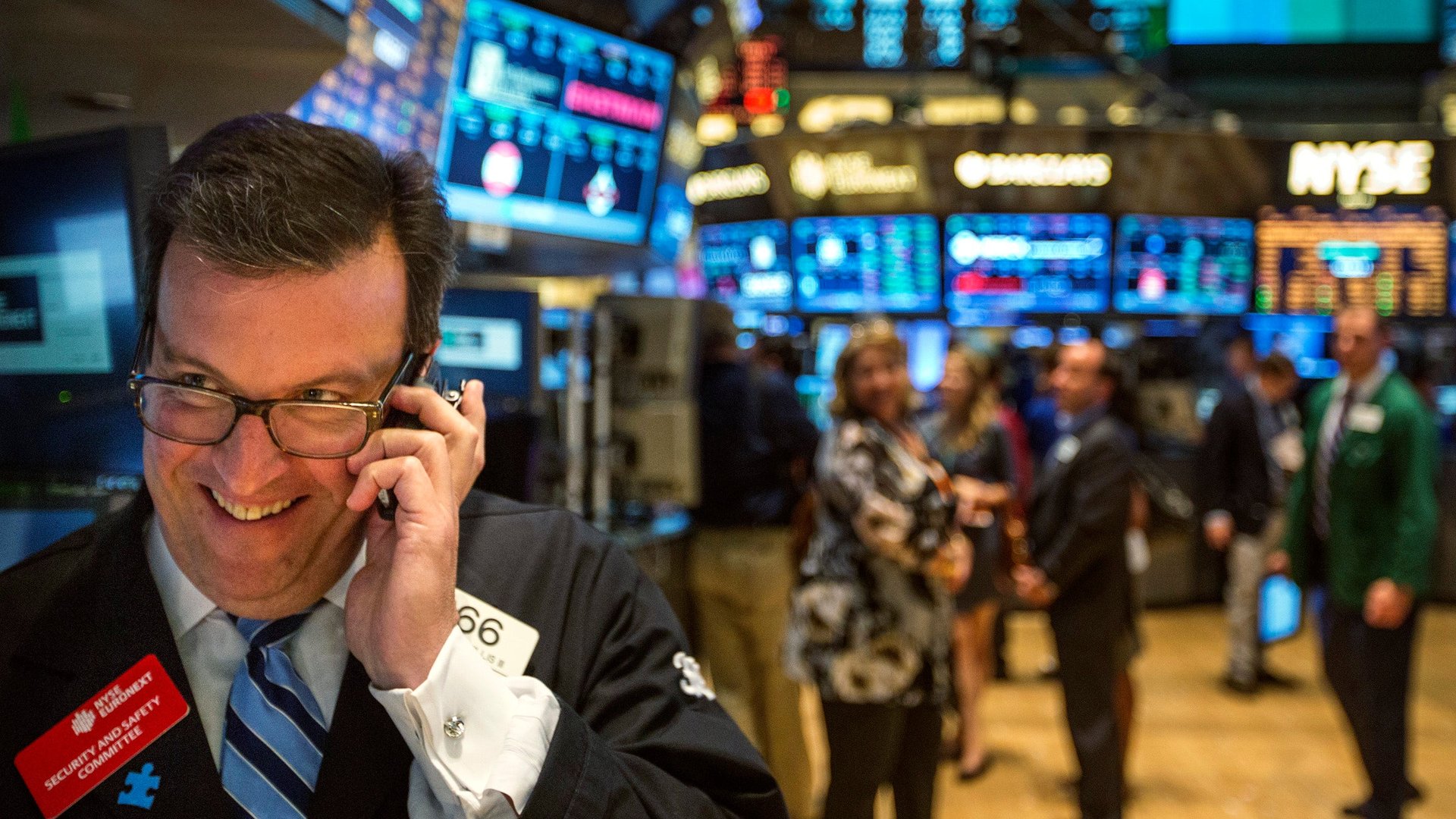Six unbroken years of job growth make clear the danger in next week’s US election
The US unemployment rate dropped below 5% last month, after the economy created more than 166,000 jobs, according to today’s government jobs report. And wages continued their gradual push higher.


The US unemployment rate dropped below 5% last month, after the economy created more than 166,000 jobs, according to today’s government jobs report. And wages continued their gradual push higher.
If the US elects Republican Donald Trump next week, and if economists are correct that his election would roil the markets, six straight years of job growth may be broken. And that’s before he even gets his hands on US economic policy.
Justin Wolfers and Eric Zitzewitz of the Brookings Institute recently studied how financial futures markets reacted to the perception that Trump may beat Hillary Clinton following key campaign events like their first presidential debate and the release of video where Trump brags about sexually assaulting women. They found that most markets tended to fall as Trump’s perceived chances of winning rose, and estimated that if he were to win on Nov. 8, the S&P 500 stock index would fall by 10%.
All in all, the authors conclude, “market participants quoted in the financial press suggest an apparent consensus that a Trump victory would lower equity prices, weaken the economy, and increase risk. Our calibration of these movements…suggest that the magnitudes of these effects would be much larger than in past Presidential elections. The estimated magnitudes of the ‘Trump discount’ are more comparable to those that accompanied the Brexit vote or 2003 Iraq War.”
Such findings may explain this week’s US stock sell-off, as polls have recently found the gap between Trump and Clinton to be narrowing. Of course, asset prices aren’t necessarily correlated with the real economy or people’s jobs. But companies will probably be reluctant to hire when investors are nervous.
And then there’s the real worry: The kinds of policies Trump would impose as president. Some sectors would benefit from his spending and regulation agenda—notably big, government-dependent industries in defense and fossil fuels—but you can expect cuts in welfare and health-care spending on the poor to pinch pocketbooks and affect aggregate demand. In an age where major corporations are bemoaning reductions in trade, it’s hard to imagine a president Trump boosting exports or imports with his protectionist agenda and tendency to attack other countries.
That’s why numerous economists have predicted a US recession if Trump becomes president, from Mark Zandi at Moody’s (“under the scenario in which all his stated policies become law in the manner proposed, the economy suffers a lengthy recession”) to UK researchers at Oxford Economics (“towards the end of the five-year forecast, U.S. GDP falls to a level around 5 percent below baseline”). Some 380 economists, including eight Nobel prize-winners, signed a letter this week calling Trump “dangerous, destructive choice” for the US.
None of this is to say that the US economy is optimal. But if you care at all about continuing America’s slow grind toward prosperity, it’s hard to look at a Trump presidency with anything but anxiety.